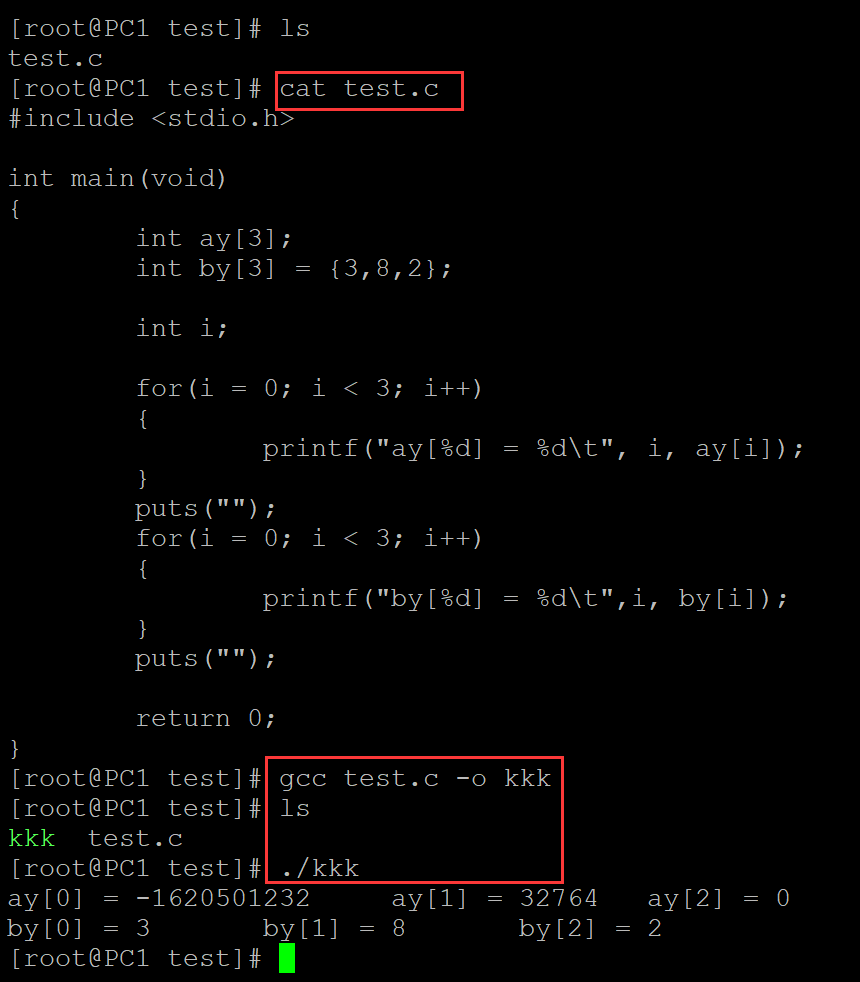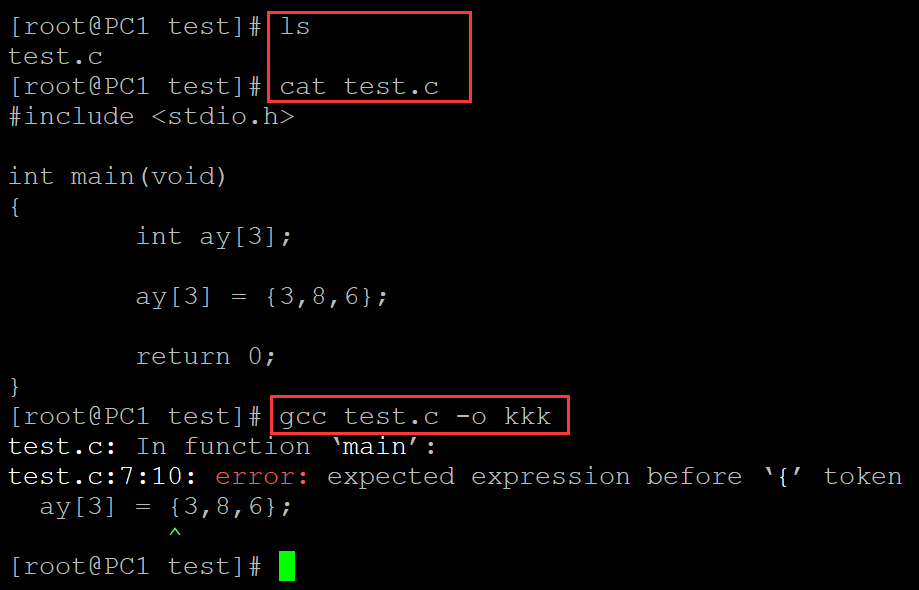c语言中数组的声明喝初始化的区别和联系
声明是不赋值; 初始化是给数组元素赋值。
001、
[root@PC1 test]# ls test.c [root@PC1 test]# cat test.c ## 测试c程序 #include <stdio.h> int main(void) { int ay[3]; // 声明,不赋值 int by[3] = {3,8,2}; // 初始化,赋值 int i; for(i = 0; i < 3; i++) { printf("ay[%d] = %d\t", i, ay[i]); } puts(""); for(i = 0; i < 3; i++) { printf("by[%d] = %d\t",i, by[i]); } puts(""); return 0; } [root@PC1 test]# gcc test.c -o kkk [root@PC1 test]# ls kkk test.c [root@PC1 test]# ./kkk ## 运算, 声明后,返回元素的值是不可预期的,为什么? ay[0] = -1620501232 ay[1] = 32764 ay[2] = 0 by[0] = 3 by[1] = 8 by[2] = 2

。
b、
[root@PC1 test]# ls test.c [root@PC1 test]# cat test.c ## 测试c程序 #include <stdio.h> int main(void) { int ay[3]; // 先声明 ay[3] = {3,8,6}; // 然后这样初始化赋值时不可以的,只能单个元素赋值,为什么会有这种限制? return 0; } [root@PC1 test]# gcc test.c -o kkk ## 编译报错 test.c: In function ‘main’: test.c:7:10: error: expected expression before ‘{’ token ay[3] = {3,8,6}; ^

。






【推荐】国内首个AI IDE,深度理解中文开发场景,立即下载体验Trae
【推荐】编程新体验,更懂你的AI,立即体验豆包MarsCode编程助手
【推荐】抖音旗下AI助手豆包,你的智能百科全书,全免费不限次数
【推荐】轻量又高性能的 SSH 工具 IShell:AI 加持,快人一步
· 震惊!C++程序真的从main开始吗?99%的程序员都答错了
· 【硬核科普】Trae如何「偷看」你的代码?零基础破解AI编程运行原理
· 单元测试从入门到精通
· 上周热点回顾(3.3-3.9)
· winform 绘制太阳,地球,月球 运作规律
2022-10-27 python 脚本统计fasta文件每条scaffold的碱基长度
2022-10-27 linux 中 shell 统计每条scaffold的长度
2022-10-27 linux 中 wc -c命令
2022-10-27 linux 系统中如何判断字符串是否相同
2021-10-27 R语言中%*%运算符
2021-10-27 windows中如何查看端口占用情况、端口是否开启
2021-10-27 R语言中setdiff、intersect、union函数